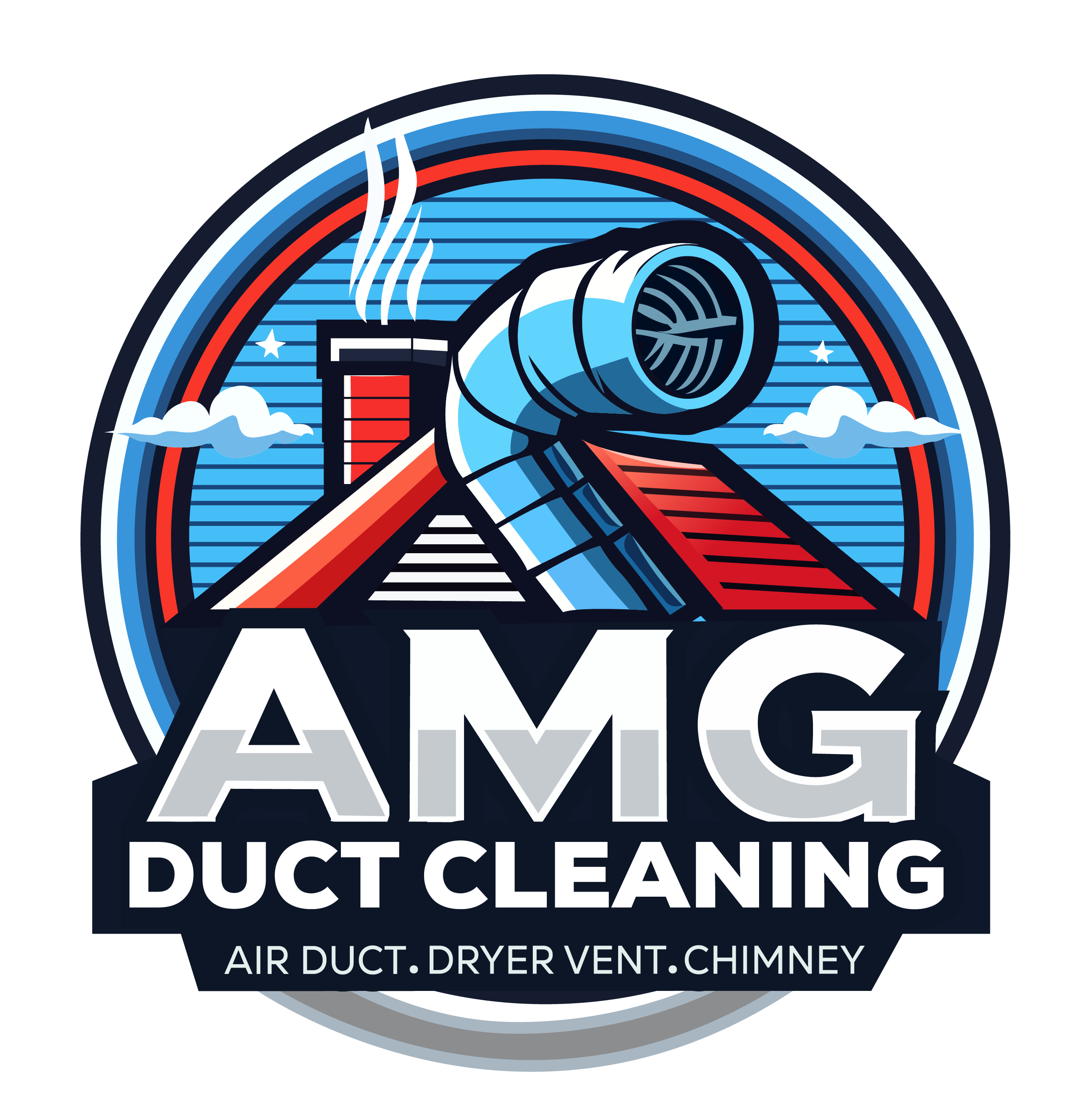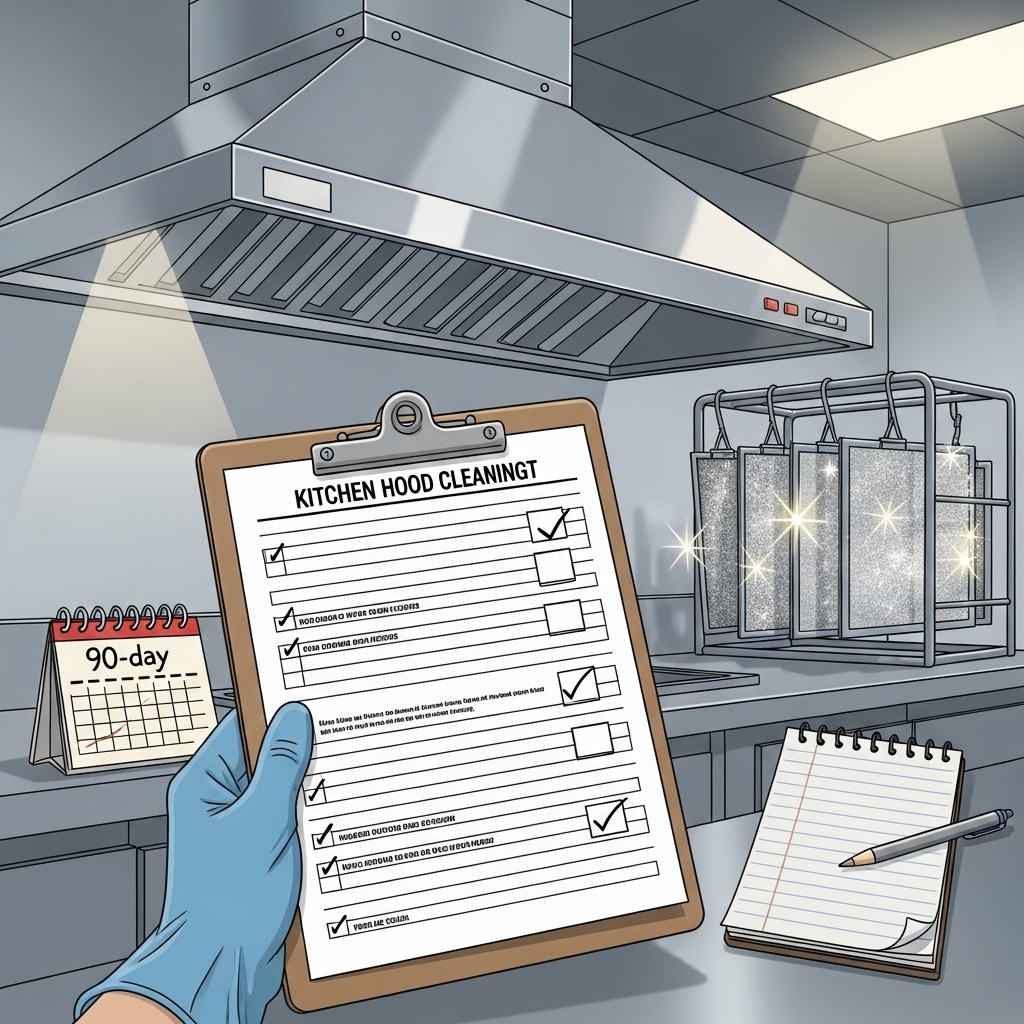Introduction: A Practical Checklist for New Jersey Kitchens
New Jersey restaurants thrive on speed and consistency, but grease buildup in exhaust systems can undermine both. A clear, actionable checklist helps owners and managers coordinate daily tasks, weekly upkeep, and scheduled professional services. Start by committing to professional kitchen hood cleaning at appropriate intervals, then layer in staff routines that keep air moving and surfaces safe between visits.
What follows is a comprehensive, New Jersey‑focused checklist covering daily, weekly, monthly, and quarterly routines, plus documentation and inspection guidance. Use it to train staff, prepare for health and fire inspections, and maintain a safer environment for your team and guests.
Daily Tasks: Keep Grease Under Control
- Wipe exterior hood surfaces with a degreasing safe cleaner to prevent residue from hardening.
- Inspect baffle filters at opening and close—replace or clean if visibly loaded.
- Confirm the exhaust fan and make‑up air are operating before cooking begins.
- Check for smoke roll‑out at the front of the hood; address immediately if observed.
- Wipe nearby walls, shelves, and lights to reduce re‑deposit of grease particles.
- Empty and clean grease collection trays beneath filters where applicable.
- Note any unusual fan noise, rattling, or vibration and report it to management.
- Record quick observations in a logbook to spot trends over time.
Weekly Tasks: Build a Rhythm
- Remove baffle filters for soaking or hot‑tank cleaning as needed; rotate spares to keep airflow consistent.
- Inspect the hood plenum (interior) with a flashlight to spot early grease streaks or drips.
- Check light lenses and fire suppression nozzles for residue; keep clear and clean per manufacturer guidance.
- Verify the service tag date and plan ahead for the next professional cleaning.
- Ensure chemical supplies and PPE for in‑house wipe‑downs are stocked and labeled.
Monthly Tasks: Go a Layer Deeper
- Audit staff training on filter maintenance and start‑up/shutdown routines.
- Inspect accessible duct sections and fan housings where safe access exists.
- Review odor, smoke, or heat complaints from staff and guests to identify airflow issues.
- Check make‑up air filters and vents for blockages or dust accumulation.
- Confirm exterior roof areas beneath the fan are free of visible grease spills.
Quarterly or As‑Needed: Professional Cleaning and Verification
Set a cadence that matches your menu and volume. High‑volume and fry‑heavy kitchens may require more frequent service. Coordinate timing after peak periods or before planned inspections. Ensure your provider documents before‑and‑after conditions with photos, places service tags, and flags any access or mechanical issues for follow‑up.
The Detailed Checklist for Professional Visits
- Site protection in place: Floors, appliances, and prep areas covered and shielded.
- Filters removed, soaked, and cleaned thoroughly.
- Hood interior degreased to bare metal where achievable, including seams and corners.
- Ductwork serviced end‑to‑end using access panels, scraping, brushing, and hot water rinsing.
- Exhaust fan disassembled as needed; blades and housings degreased and rinsed.
- Rooftop grease containment inspected and cleaned; pads replaced as needed.
- Make‑up air verified; visible blockages or balance issues noted for follow‑up.
- Final detailing: Stainless surfaces polished; area wiped and dried.
- Documentation delivered: Photos, service tag updates, and recommendations provided.
Mid‑Article Reminder: Keep the Cycle Going
Routine attention is the secret to lasting results. Pairing daily filter care with scheduled professional kitchen hood cleaning prevents surprise findings during inspections and preserves the comfort and safety of your line during peak periods.
Inspection Prep for New Jersey Restaurants
- Confirm your service tag dates are current and visible to inspectors.
- Keep a binder or digital folder with photo reports from each hood cleaning visit.
- Label hood locations clearly if you have multiple hoods on site.
- Document staff training dates for filter changes, start‑up checks, and cleaning routines.
- Log maintenance issues and resolutions, such as access panel installation or fan belt replacements coordinated with your HVAC team.
Signs You Need to Adjust Frequency
- Filters clog rapidly, causing fans to labor or smoke to roll out.
- Grease drips appear along duct seams or on the rooftop beneath the fan.
- Lingering odors or heat persist despite normal operations.
- After a cleaning, heavy residue reappears quickly on exterior surfaces.
- Event‑driven spikes (catering, seasonal tourism, sports seasons) increase production volume.
Coordination Tips for Multi‑Hood Kitchens
- Stagger filter maintenance so each line retains optimal capture.
- Assign a point person to own the checklist and liaise with your provider.
- Schedule service by zones to limit downtime and food waste.
- Bundle hood cleaning with other maintenance (ice machine sanitation, hood light replacements) when possible.
- Plan ahead around inspections, campus events, or holidays common in New Jersey communities.
Frequently Asked Questions
Q: How long should professional cleaning take? A: Most single‑hood restaurants can be serviced in a few hours, but multi‑hood sites or complex duct runs may require more time.
Q: What should staff do before the crew arrives? A: Cool appliances, clear adjacent areas, and secure valuables. Ensure water and electrical access are available.
Q: Do we need access panels? A: Yes, sufficient access panels allow thorough duct cleaning. Your provider can recommend compliant installation if needed.
Q: How often should filters be cleaned in‑house? A: Many kitchens rotate or clean baffle filters weekly, or more often for high‑volume frying.
Q: Will the crew clean the rooftop? A: They should clean the fan discharge and immediate rooftop area and may recommend grease containment if not already installed.
Q: Can we rely solely on staff for hood maintenance? A: Staff can manage surface wipe‑downs and filter care, but duct and fan cleaning require professional equipment and expertise.
Keep Your New Jersey Kitchen on Track
This checklist empowers your team to handle daily discipline while reserving deep system work for experts. Maintain logs, act on early warning signs, and keep communication open with your provider. Doing so reduces risk, improves comfort, and readies you for inspections year‑round.
Take the Next Step
Protect your team and your business by aligning daily routines with a dependable service cadence. If you’re ready to simplify scheduling and documentation, connect with a New Jersey specialist and arrange professional kitchen hood cleaning that complements your menu and hours.

